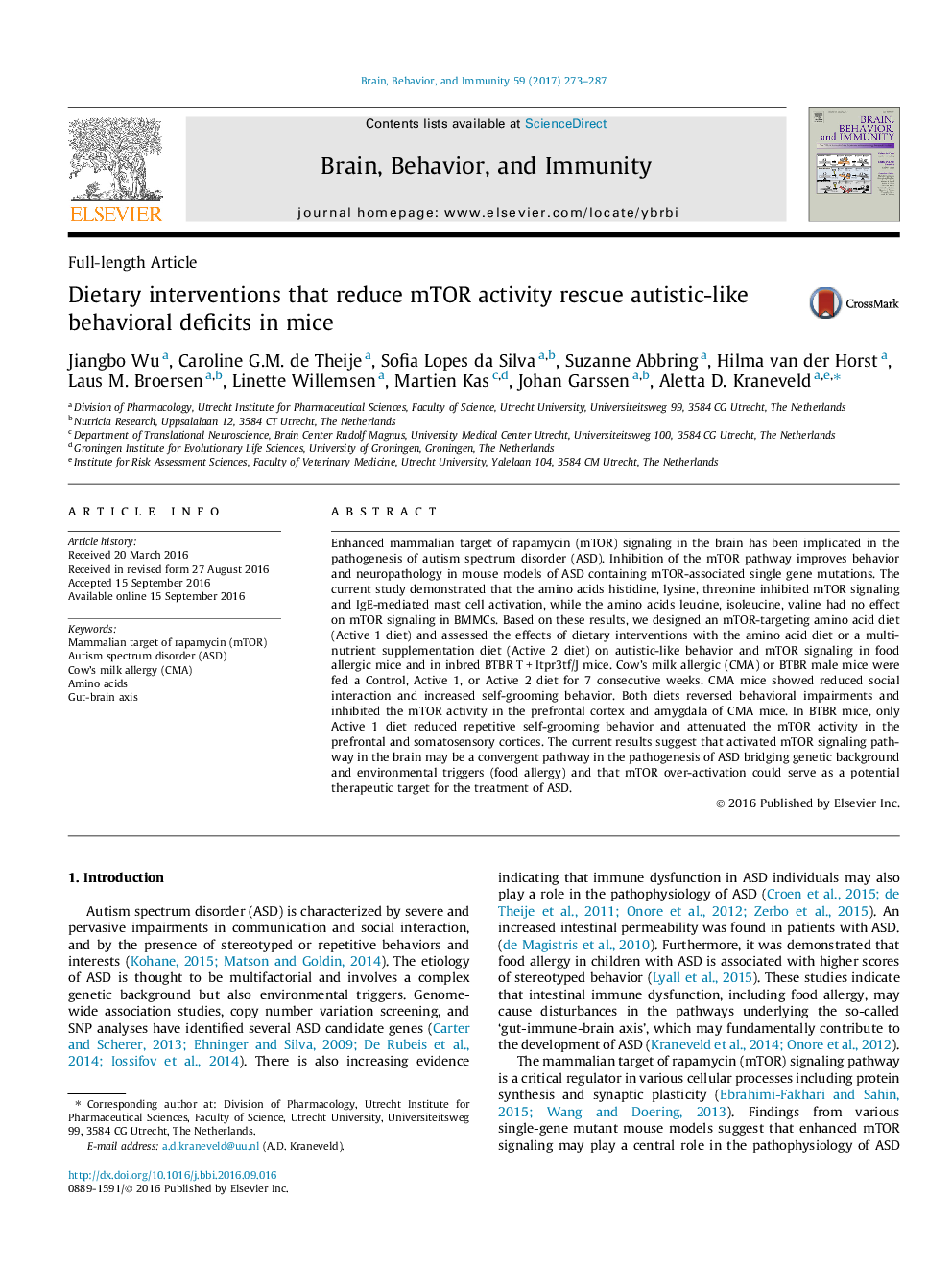| کد مقاله | کد نشریه | سال انتشار | مقاله انگلیسی | نسخه تمام متن |
|---|---|---|---|---|
| 5040947 | 1473908 | 2017 | 15 صفحه PDF | دانلود رایگان |

- Amino acids, his, lys and thr, inhibited mTOR pathway in antigen-activated mast cells.
- Amino acids, his, lys and thr inhibited degranulation and cytokine production of mast cells.
- Amino acid diet reversed mTOR activity in the brain and behavioral deficits in allergic and BTBR mice.
- Neuroprotective and anti-inflammatory diet reduced behavioral deficits only in allergic mice.
Enhanced mammalian target of rapamycin (mTOR) signaling in the brain has been implicated in the pathogenesis of autism spectrum disorder (ASD). Inhibition of the mTOR pathway improves behavior and neuropathology in mouse models of ASD containing mTOR-associated single gene mutations. The current study demonstrated that the amino acids histidine, lysine, threonine inhibited mTOR signaling and IgE-mediated mast cell activation, while the amino acids leucine, isoleucine, valine had no effect on mTOR signaling in BMMCs. Based on these results, we designed an mTOR-targeting amino acid diet (Active 1 diet) and assessed the effects of dietary interventions with the amino acid diet or a multi-nutrient supplementation diet (Active 2 diet) on autistic-like behavior and mTOR signaling in food allergic mice and in inbred BTBR TÂ +Â Itpr3tf/J mice. Cow's milk allergic (CMA) or BTBR male mice were fed a Control, Active 1, or Active 2 diet for 7 consecutive weeks. CMA mice showed reduced social interaction and increased self-grooming behavior. Both diets reversed behavioral impairments and inhibited the mTOR activity in the prefrontal cortex and amygdala of CMA mice. In BTBR mice, only Active 1 diet reduced repetitive self-grooming behavior and attenuated the mTOR activity in the prefrontal and somatosensory cortices. The current results suggest that activated mTOR signaling pathway in the brain may be a convergent pathway in the pathogenesis of ASD bridging genetic background and environmental triggers (food allergy) and that mTOR over-activation could serve as a potential therapeutic target for the treatment of ASD.
Journal: Brain, Behavior, and Immunity - Volume 59, January 2017, Pages 273-287